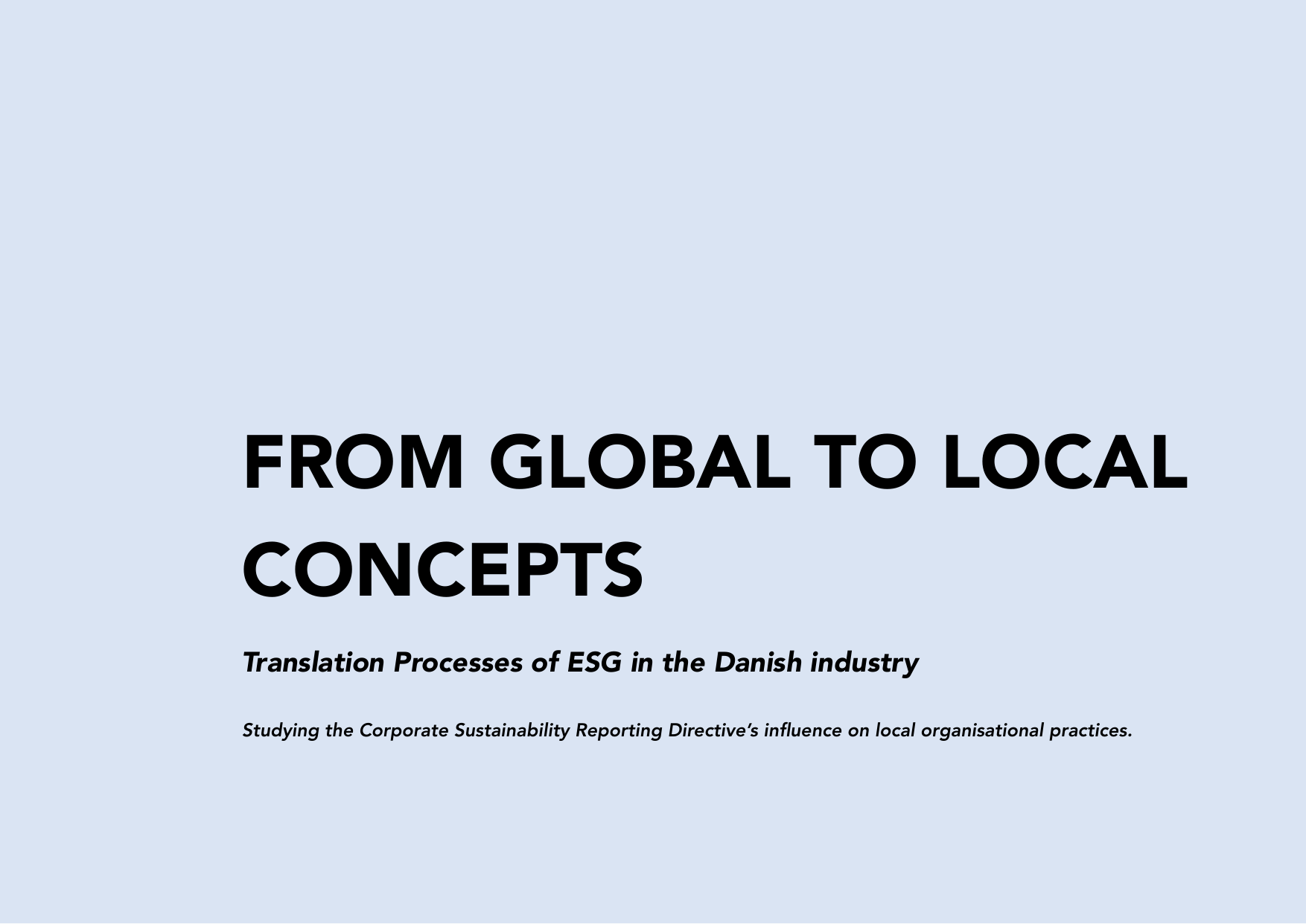
From Global to Local Concepts: Translation Processes of ESG in the Danish industry: Studying the Corporate Sustainability Reporting Directive's influence on local organisational practices.
Term
4. Term
Education
Publication year
2024
Submitted on
2024-06-05
Pages
68
Abstract
This study investigates the potential of the EU’s Corporate Sustainability Reporting Directive (CSRD) to drive organisational change towards sustainability. Despite its growing prominence, the impact of the CSRD on internal organisational practices remains underexplored. Through qualitative research, we examine how the directive influences local practices within Danish companies. By talking with 12 practitioners actively involved in CSRD work, we uncover the varied interpretations and implementations of the directive. We show how the CSRD brings about sustainability reporting with greater institutional force than ever, giving agency to the employees responsible for its implementation. Drawing on Scandinavian Institutionalism, we reveal three scenarios of CSRD implementation: The Compliance exercise, The Strategic tool, and the Catalyst for change. These scenarios differ depending on the CSRD employees’ abilities to leverage their newfound agency, and consequently, the local translations and materialisations of the directive. Therefore, we argue that the directive’s potential to drive real change depends on the employees responsible for its implementation, and their socio-political skills and competencies in leveraging agency. This research contributes to the academic discourse on sustainability reporting by providing novel insights into the local effects of mandatory reporting regimes and offers practical recommendations for leveraging the CSRD in promoting organisational change for sustainability.
This study investigates the potential of the EU’s Corporate Sustainability Reporting Directive (CSRD) to drive organisational change towards sustainability. Despite its growing prominence, the impact of the CSRD on internal organisational practices remains underexplored. Through qualitative research, we examine how the directive influences local practices within Danish companies. By talking with 12 practitioners actively involved in CSRD work, we uncover the varied interpretations and implementations of the directive. We show how the CSRD brings about sustainability reporting with greater institutional force than ever, giving agency to the employees responsible for its implementation. Drawing on Scandinavian Institutionalism, we reveal three scenarios of CSRD implementation: The Compliance exercise, The Strategic tool, and the Catalyst for change. These scenarios differ depending on the CSRD employees’ abilities to leverage their newfound agency, and consequently, the local translations and materialisations of the directive. Therefore, we argue that the directive’s potential to drive real change depends on the employees responsible for its implementation, and their socio-political skills and competencies in leveraging agency. This research contributes to the academic discourse on sustainability reporting by providing novel insights into the local effects of mandatory reporting regimes and offers practical recommendations for leveraging the CSRD in promoting organisational change for sustainability.
Keywords
Documents
